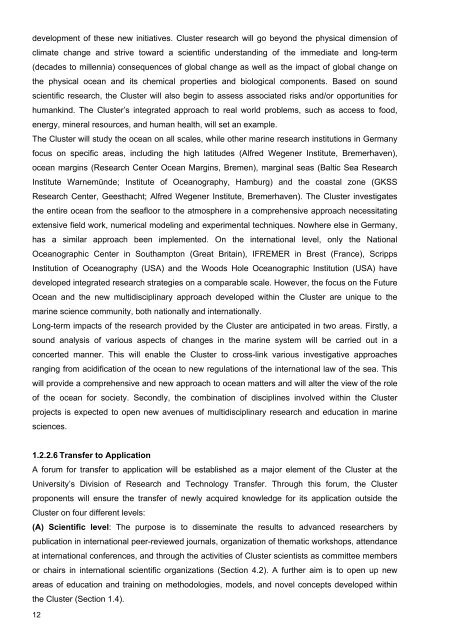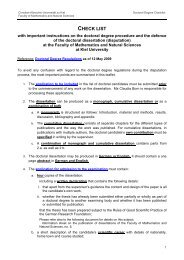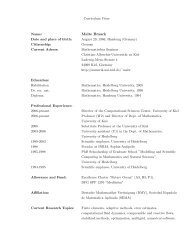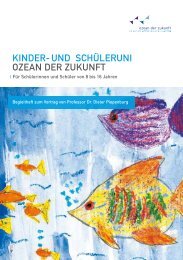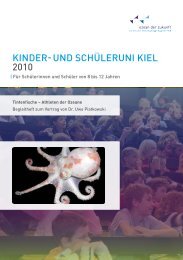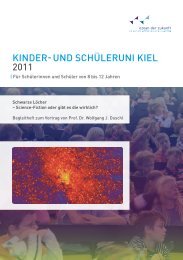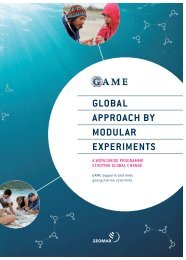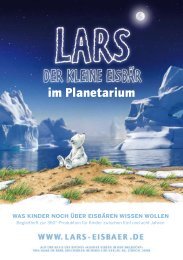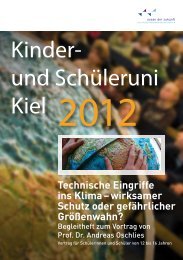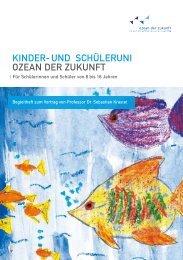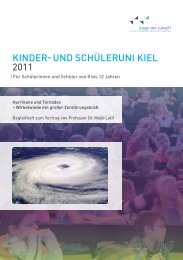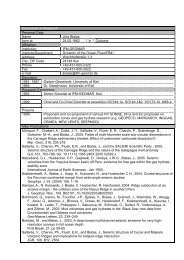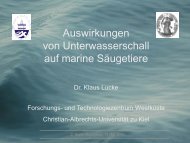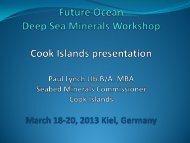Untitled - The Future Ocean
Untitled - The Future Ocean
Untitled - The Future Ocean
- No tags were found...
You also want an ePaper? Increase the reach of your titles
YUMPU automatically turns print PDFs into web optimized ePapers that Google loves.
development of these new initiatives. Cluster research will go beyond the physical dimension ofclimate change and strive toward a scientific understanding of the immediate and long-term(decades to millennia) consequences of global change as well as the impact of global change onthe physical ocean and its chemical properties and biological components. Based on soundscientific research, the Cluster will also begin to assess associated risks and/or opportunities forhumankind. <strong>The</strong> Cluster’s integrated approach to real world problems, such as access to food,energy, mineral resources, and human health, will set an example.<strong>The</strong> Cluster will study the ocean on all scales, while other marine research institutions in Germanyfocus on specific areas, including the high latitudes (Alfred Wegener Institute, Bremerhaven),ocean margins (Research Center <strong>Ocean</strong> Margins, Bremen), marginal seas (Baltic Sea ResearchInstitute Warnemünde; Institute of <strong>Ocean</strong>ography, Hamburg) and the coastal zone (GKSSResearch Center, Geesthacht; Alfred Wegener Institute, Bremerhaven). <strong>The</strong> Cluster investigatesthe entire ocean from the seafloor to the atmosphere in a comprehensive approach necessitatingextensive field work, numerical modeling and experimental techniques. Nowhere else in Germany,has a similar approach been implemented. On the international level, only the National<strong>Ocean</strong>ographic Center in Southampton (Great Britain), IFREMER in Brest (France), ScrippsInstitution of <strong>Ocean</strong>ography (USA) and the Woods Hole <strong>Ocean</strong>ographic Institution (USA) havedeveloped integrated research strategies on a comparable scale. However, the focus on the <strong>Future</strong><strong>Ocean</strong> and the new multidisciplinary approach developed within the Cluster are unique to themarine science community, both nationally and internationally.Long-term impacts of the research provided by the Cluster are anticipated in two areas. Firstly, asound analysis of various aspects of changes in the marine system will be carried out in aconcerted manner. This will enable the Cluster to cross-link various investigative approachesranging from acidification of the ocean to new regulations of the international law of the sea. Thiswill provide a comprehensive and new approach to ocean matters and will alter the view of the roleof the ocean for society. Secondly, the combination of disciplines involved within the Clusterprojects is expected to open new avenues of multidisciplinary research and education in marinesciences.1.2.2.6 Transfer to ApplicationA forum for transfer to application will be established as a major element of the Cluster at theUniversity’s Division of Research and Technology Transfer. Through this forum, the Clusterproponents will ensure the transfer of newly acquired knowledge for its application outside theCluster on four different levels:(A) Scientific level: <strong>The</strong> purpose is to disseminate the results to advanced researchers bypublication in international peer-reviewed journals, organization of thematic workshops, attendanceat international conferences, and through the activities of Cluster scientists as committee membersor chairs in international scientific organizations (Section 4.2). A further aim is to open up newareas of education and training on methodologies, models, and novel concepts developed withinthe Cluster (Section 1.4).12


